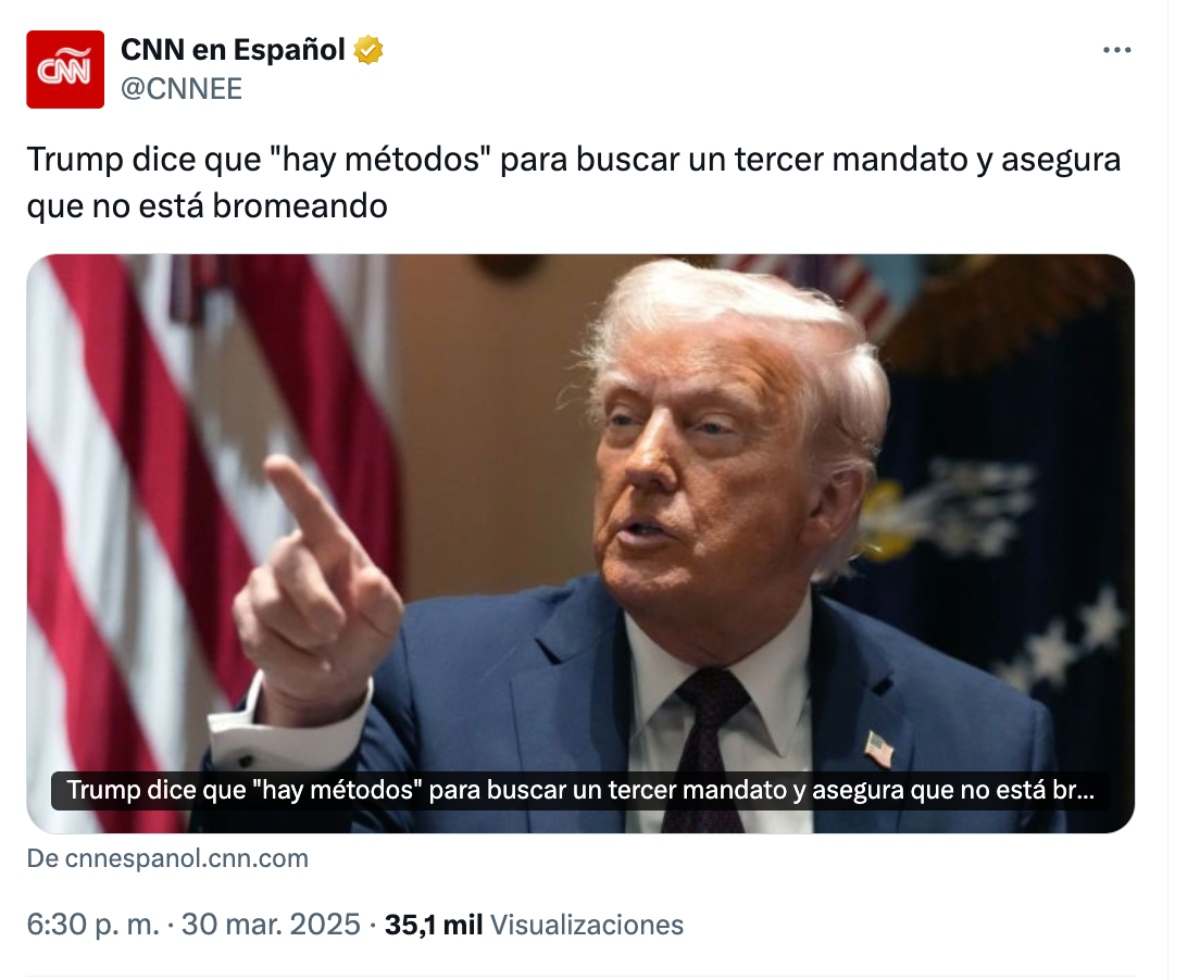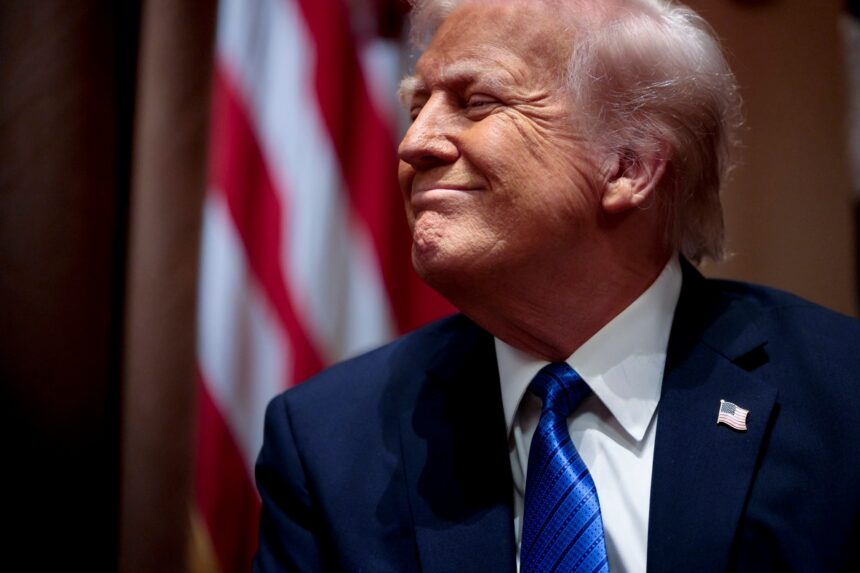Donald Trump, current president of the United States, surprised by not ruling out a possible presidential candidacy in 2028, despite the fact that the US Constitution prohibits a third term.
Trump’s statements, reported by various media outlets such as CNN and news agencies such as Efe, have generated controversy and reactions inside and outside the country.
Trump leaves door open to a third term
On his way back to Washington on the presidential plane, U.S. President Donald Trump was questioned by reporters about a third term; he stated that many people are asking him to run again because he likes the way they are working and that he did not want to talk about it, because… pic.twitter.com/Hduds1KfMX
– NMás (@nmas) March 31, 2025
During a telephone interview with NBC News, the Republican president stated:
“A lot of people want me to do it (…) But we have a long way to go. It’s very early days yet.”
Later, in statements to the press aboard the presidential plane, Trump was asked whether he would leave power at the end of his second term in January 2029.
His response was ambiguous: “I’m not considering it.”
Trump suggests ways to return to the presidency

When asked if he would consider having his vice president JD Vance run and then cede the office to him, Trump responded:
“That’s one of the ways.”
Although he did not detail other strategies, he assured that “there are also other ways” to achieve a new presidential candidacy.
What does the law say about a third term?

According to the 22nd Amendment of the U.S. Constitution, no president may be elected more than twice.
This amendment was ratified in 1951 and seeks to avoid the prolonged concentration of executive power.
Modifying this rule would require a constitutional amendment, which is extremely difficult.
The two legal avenues for this are:
Approval by two-thirds of Congress, both in the House of Representatives and the Senate.
Or, the call for a constitutional convention requested by two-thirds of the states.
Both options must be ratified by three-quarters of the states (at least 38 out of 50), a highly complex process from a political point of view.
What would this mean for Latinos in the U.S.?
The possibility that Donald Trump may attempt to continue in power beyond 2029 has raised concerns, especially among vulnerable communities such as the Hispanic population in the US.
During his administration, Trump has promoted restrictive immigration policies and a tough approach to border security issues.
An extension of its mandate – although legally unlikely – could have direct consequences on:
Immigration reforms
DACA and TPS
Access to public services
Inclusion policies and civil rights
Therefore, it is essential that the Hispanic community stay informed, participate in the electoral process and understand the legal implications of these types of presidential statements.
Mucha gente quiere que lo haga (...) Pero tenemos un largo camino por recorrer. Es muy pronto aún
Donald Trump
For more National news, visit QuéOnnda.com.














